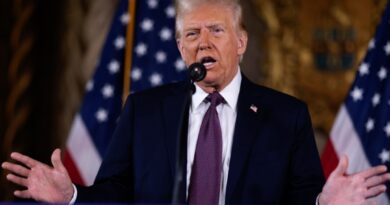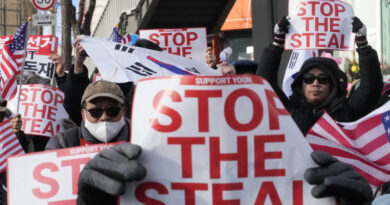A Mutiny on Chinese Bounties is Long Overdue
Commentary
Typically, when countries request mutual assistance on criminal matters, they usually establish a bilateral agreement for information exchange. Subsequently, they collaborate with agencies that share similar mandates once this agreement is in place. This is a common practice among developed nations.
For instance, if person A is wanted for a serious offense in China but flees to Canada, the People’s Republic of China can request Canada, through the RCMP for example, to apprehend the suspect and deliver them for detention and trial (though Chinese trials are known to be questionable and unfair).
However, China should not be allowed to issue a “bounty” on the individual they seek to arrest and incite Canadians to capture the person and transport them to the nearest Chinese diplomatic facility to claim the reward. Nor should they endorse third parties to carry out their agenda.
Yet, that’s exactly what occurred when Liberal candidate Paul Chiang suggested that anyone could surrender Conservative candidate Joe Tay, who is also a human rights advocate, to the Chinese Consulate in Toronto and claim a bounty put by Hong Kong authorities on him. This not only raises doubts about legality but also hints at ongoing foreign (i.e., PRC) interference in our electoral process. If a candidate is sent back to China, it significantly hampers their ability to run for office.
Although there was initial hesitation within the party regarding the acceptability of such actions in Canada, Mr. Chiang eventually withdrew from the race and was replaced by former Toronto police deputy chief Peter Yuen. Yet, for those hoping that PRC influence in the electoral process had been eradicated, reconsider: Mr. Yuen also has ties to pro-PRC sentiments.
The major concern here is why political candidates are not subjected to vetting before being accepted as party members. Why don’t the parties implement thorough procedures to ensure that their candidates are not influenced by foreign powers, at the least?
And the reality is, this is not a complicated task at all.
We have an existing entity, the Canadian Security Intelligence Service (CSIS), with vast experience in security vetting. While this is typically related to citizenship and refugee cases, it could easily be expanded to cover election candidates. After all, CSIS already handles tens of thousands of status applications in Canada each year—the security screening branch is one of the busiest departments within the agency—and including a few hundred candidates every couple of years wouldn’t be overly burdensome.
Naturally, all parties need to agree to this measure, and we are aware that achieving consensus in politics is a rarity these days. However, if one party were to support this initiative while others oppose it, Canadians would know which party prioritizes national security and takes foreign interference seriously (an issue seldom discussed in election campaigns).
It’s imperative that China is not allowed to infiltrate our democratic system with its agents, with or without party consent. The mechanisms to prevent this to the greatest extent already exist, function relatively effectively, and must be followed. The lack of willingness in Canada to safeguard our systems speaks volumes and signals to our allies that we are vulnerable.
This is not a lawless frontier. We don’t need prominent figures encouraging citizens to take justice into their own hands and act as bounty hunters. Let’s reserve that role for low-budget Netflix shows, thank you.
Views expressed in this article are opinions of the author and do not necessarily reflect the views of The Epoch Times.





